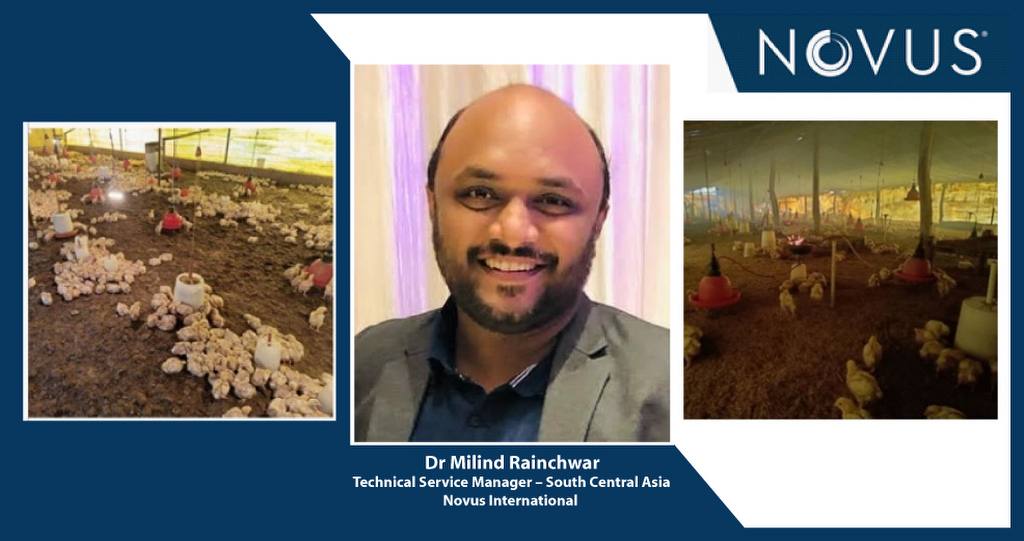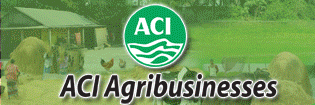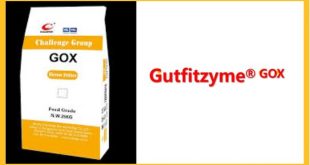 Dr. Milind Rainchwar : Poultry rearing is an art as well as a science and management plays most crucial role in deciding profitability of this business. It has been observed in past several years that high market rates of broiler meat & eggs are observed only in those times when rearing is very difficult due to harsh climate and thus, demand is more than supply. Therefore, it is very important to understand and implement the best management practices in such harsh climate.
Dr. Milind Rainchwar : Poultry rearing is an art as well as a science and management plays most crucial role in deciding profitability of this business. It has been observed in past several years that high market rates of broiler meat & eggs are observed only in those times when rearing is very difficult due to harsh climate and thus, demand is more than supply. Therefore, it is very important to understand and implement the best management practices in such harsh climate.
Every region in India has different climatic challenges and variable climate extremes and thus management practices differ between different parts of country. But almost all parts of India experience three to five distinct seasons across the year.
Winter is one of the seasons which presents very harsh temperature extremes and maintaining liveability and production becomes very difficult without taking extra measures. Management in winter is very difficult and often described as double edges sword, as a very perfect balance is required between climate management and ventilation management. Similarly, a very careful decision making is required to reduce cost of production and to provide healthy environment at the same time. It requires ample of experience to understand the economic feasibility of cost involving management practices.
Chickens are unable to maintain body temperature in young age and although they improve their tolerance to cold with age, they cannot perform well when ambient temperature drops below 20 degrees Celsius and start exhibiting stress and drop in productivity. Failure to provide optimum temperature very frequently results in high mortality, high disease incidence and drop in performance.
Although ways of practicing the management in harsh climate may differ slightly across region, the basic principles remain same. Below listed are few basic principles which may guide proper decision making.
- Proper temperature and humidity suitable for the age is always required
- Proper ventilation to provide fresh air and removing gases inside house is always required
- The rearing surface and bedding material should be always warm and dry
- The drinking water should be maintained at suitable temperature to promote water intake
- The feed & feeding practice should help bird to maintain their body temperature, metabolism, and osmo-regulation
To achieve these goals, following practices are implemented across country
- External heat source is provided to keep the poultry shed warm and dry
- False ceiling is often used to reduce the volume of shed
- Various types and layers of curtains and jute bags are used to insulate the farm
- Round brooding is often practiced when spot heating is done
As stopping the air flow becomes necessary to maintain temperature, it is very difficult to remove the gases like ammonia and to keep bedding material dry in winter. These challenges affect the respiratory, hepatic, and gut health directly.
The wet litter and humid conditions provide a very suitable environment for gut pathogens like Coccidiosis and Clostridium. The stressed and immunosuppressed birds become easy target for these gut pathogens and therefore, very high-performance losses are observed due to poor gut health. It is a well-known fact that body only gets that part of nutrition, which gut retains. An unhealthy gut loses a lot of nutrients which are necessary for weight gain and egg production. The major part of poultry immune system is also situated in gut. Thus, healthy gut is key to a developed immune system.
While managing good managemental practices, essential needs such as Proper feed and water is an utmost need to optimise performance during this difficult time. Gut health compromise always leads to poor performance and thus loss in business. Different fed additives play crucial role in maintaining and improving gut health such as Protease, NSPase Enzyme, Probiotics, Essential oils, Organic Acids, etc.
Serine Protease, A broad spectrum protease when added in the feed improves the digestibility and absorption of Amino acids which otherwise are the food for pathogens in the hind gut like Clostridium, Salmonella, etc. This Protease thus enables the improved digestion of Nutrients and reduces the pathogenic load and helps to improve litter condition.
Serine protease has other benefits as well. It has good impact on neutralisation of trypsin inhibitor, an Antinutritional factor in Soybean. Use of Serine Protease also helps to reduce the allergen proteins like Lectins, B Conglycinin by significant amount which otherwise causes the gut irritation. Hence, Proper use of Protease in winter leads to improved litter quality with better absorption of nutrients.
NSPase when added in the feed improves the absorption of nutrients and helps to reduce wet litter condition. Improvement in litter quality leads to the less damage by pathogens.
Organic Copper has the strong impact on litter quality in winter (copper is antifungal in nature). It helps to improve the Clostridium cluster IV & XIVA which are responsible to increase the Lactobacillus count in the gut and maintains or improve microflora through competitive expulsion. This, then enables to improve the litter quality.
Organic Acids such as Coated Benzoic acids helps not only to reduce pathogenic bacteria such Clostridium, Salmonella as well they help to improve Lactobacillus count in gut through increase in Clostridium clusters IV and XIVA which are responsible for Increase in Lactobacillus count.
Essential oils are considered primarily Digestive enhancers apart from their immune function. They help to digest the nutrients in early stages effectively where endogenous enzyme is not active fully. Also, they impede quorum sensing, thus acts as Antibacterial in nature too.
Addition of God organic Acids such as formic Acids, Propionic acids in water to keep water acidification at par is key to improve water quality. Water intake is always a concern in winter. Thus, Effective use of Organic acids along with water Sanitisers to improve water quality and intake should always be considered in winter season.
Below are some pics showing the brooding in Winter and Impact of Winter on gut Health if not managed well…
Author: Technical Service Manager – South Central Asia, Novus International
 Agrinews24 কৃষির সাথে, কৃষকের পাশে
Agrinews24 কৃষির সাথে, কৃষকের পাশে





















